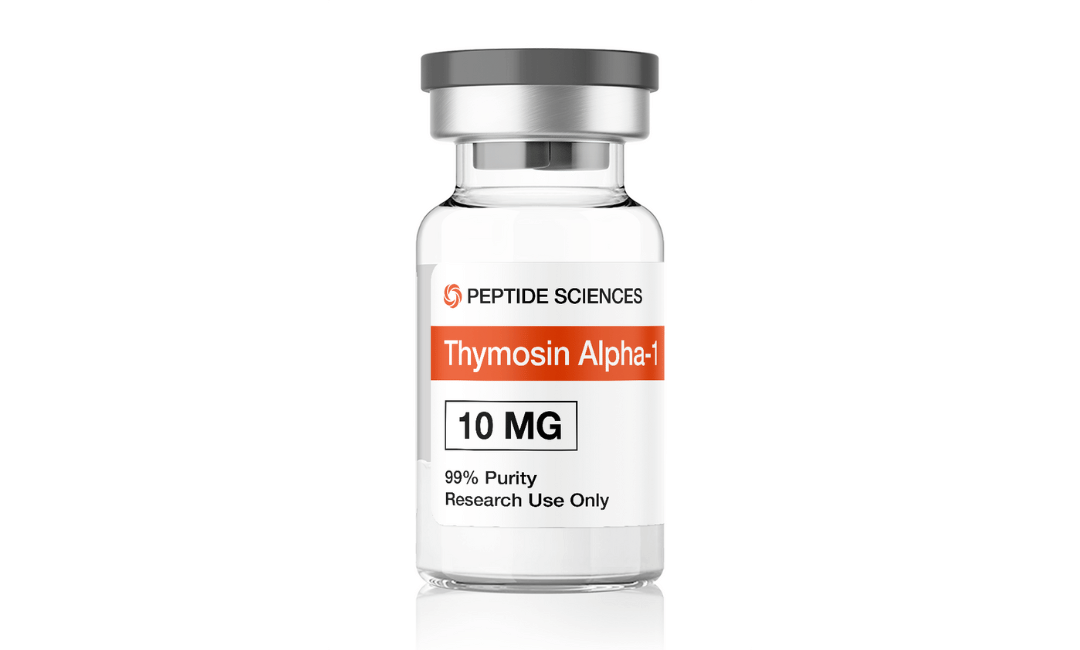
Understanding Thymosin Alpha 1: A Comprehensive Supplement Guide
Thymosin Alpha 1 (TA1) has garnered significant interest both in medical circles and among individuals seeking to bolster their immune system and overall well-being. This naturally occurring peptide, produced within the thymus gland, holds immense potential in immune regulation and has been extensively researched for its therapeutic applications in combating infections, cancer, and autoimmune disorders. Here’s your comprehensive guide to understanding Thymosin Alpha 1, including its benefits, mode of action, potential side effects, and usage recommendations.
What is Thymosin Alpha 1?
Thymosin Alpha 1, a peptide synthesized within the thymus gland, stands as a pivotal player in immune function. This gland, integral to the immune system, fosters the development of T-cells, vital components of the body’s defense mechanism. TA1’s immune-modulating properties enable it to regulate immune responses, enhancing or suppressing them as required by the body’s needs.
How Does Thymosin Alpha 1 Work?
Thymosin Alpha 1 (TA1) is a potent peptide, pivotal for boosting the body’s defense mechanisms against a myriad of health challenges. It specifically targets the enhancement of T-cells and dendritic cells, critical players in the immune response, ensuring the body remains vigilant against infections and diseases.
Moreover, TA1’s role extends to the regulation of cytokine production, the proteins that are essential for managing immune and inflammatory responses, highlighting its importance in immune system regulation.
Strengthening T-Cell and Dendritic Cell Functions: TA1’s remarkable ability to encourage the maturation, differentiation, and proliferation of T-cells and dendritic cells is vital for orchestrating a robust immune defense. This is particularly crucial for individuals facing chronic hepatitis B, HBeAg-positive chronic hepatitis, or undergoing treatment for cancer, where TA1 significantly amplifies the immune system’s ability to combat pathogens.
Balancing Cytokine Production: TA1 also significantly influences cytokine production, ensuring a harmonious balance that supports immune function while preventing potentially harmful overreactions. This balancing act is crucial for managing inflammatory processes and maintaining immune equilibrium.
Clinical Applications and Research
TA1 has been spotlighted in clinical trials for its efficacy in conditions characterized by compromised immune functions, such as chronic hepatitis, acquired immune deficiency syndrome (AIDS), and the effects of the human immunodeficiency virus (HIV). Its capacity to invigorate the immune system renders it an invaluable component in the therapeutic arsenal for enhancing patient outcomes in these conditions.
Strategies for Utilizing TA1
Engage with Healthcare Experts: Considering TA1’s potent immunomodulatory effects, consulting healthcare professionals familiar with its use in chronic hepatitis and HIV/AIDS is essential before starting treatment.
Holistic Health Management: Incorporating TA1 into a broader health management plan, including diet, exercise, and stress reduction, maximizes its benefits, particularly in enhancing immune response in chronic hepatitis B and HIV/AIDS patients.
Stay Updated on Research: The landscape of immunotherapy, including treatments for chronic hepatitis and HIV/AIDS, is rapidly evolving. Keeping informed about the latest clinical trials and research findings can help patients and healthcare providers make informed decisions about incorporating TA1 into treatment protocols.
Thymosin Alpha 1 offers a promising avenue for boosting immune health, particularly in battling conditions like chronic hepatitis, HIV/AIDS, and other immune-compromised states. Its multifaceted role in enhancing immune cell function and regulating cytokine production makes it a key player in the quest for optimal immune function and disease management.
Benefits of Thymosin Alpha 1

Thymosin Alpha 1 (TA1) has emerged from extensive research as a significant contributor to immune health, offering a range of benefits backed by its ability to modulate and enhance immune function. Its role in medicine is increasingly recognized, particularly in its capacity to:
Boost Vaccine Efficacy: TA1 is known to amplify the body’s response to vaccines. This enhancement is crucial for developing robust immunity against pathogens, ensuring that vaccines work more effectively in individuals, including those with chronic HBV infection or chronic hepatitis C.
Combat Viral Infections: The antiviral activity of TA1 is well-documented, with research highlighting its efficacy against a spectrum of viral infections. From hepatitis B virus (HBV) to hepatitis C and HIV, TA1 has shown promise in inhibiting viral replication, offering a ray of hope in managing viral hepatitis. Its potential against severe acute respiratory syndrome (SARS) and acute respiratory distress syndrome (ARDS) also points to its broader applicability in viral outbreak scenarios.
Augment Cancer Therapies: TA1 supports cancer treatment by empowering the immune system to more effectively target tumor cells. It enhances the body’s natural defense against cancer, while also alleviating some of the adverse side effects associated with chemotherapy. Its role in lung cancer management, in particular, has been highlighted, with TA1 aiding in the immune system’s fight against tumor cells and possibly reducing tumor necrosis factor-alpha levels, a key marker of inflammation and cancer progression.
Regulate Autoimmune Responses: For those battling autoimmune disorders, TA1 offers hope by delicately balancing the immune system’s activity to prevent it from attacking the body’s own cells. This regulation is partly achieved through activating dendritic cells, crucial for T cell maturation, and maintaining the integrity of thymic epithelial cells—all key components in a healthy, functioning immune system.
Practical Insights and Applications:
Solid Phase Synthesis: The manufacturing of TA1 through solid phase synthesis ensures purity and consistency in the product, making it a reliable component of therapeutic regimens.
Measuring Immune Health: Cell receptor excision circles (TRECs) are a measure of thymic output and can be used alongside TA1 therapy to gauge improvements in immune function, especially in conditions like HIV and chronic hepatitis.
Enhancing Immune Surveillance: By activating dendritic cells and promoting T cell maturation, TA1 enhances the body’s surveillance against pathogens and cancer, reinforcing its role in preventive health strategies.
By the Numbers: Studies have shown that patients with chronic hepatitis C treated with TA1 experienced a significant reduction in viral load, with some reports indicating a decrease in viral replication.
Thymosin Alpha 1 stands out for its versatile applications in boosting immune responses, from enhancing vaccine efficacy and combating viral infections to supporting cancer treatment and managing autoimmune conditions. Its role in the future of medical treatment continues to expand, offering new pathways to improved health and well-being.
Potential Side Effects and Safety
While Thymosin Alpha 1 is generally well-tolerated under medical supervision, minor side effects like injection site reactions may occur. However, caution is advised, particularly for individuals with specific health conditions or those who are pregnant or breastfeeding. Consultation with a healthcare provider before initiating any new supplement regimen is crucial.
Usage and Dosage
Typically administered via subcutaneous injection, TA1 dosage and duration of therapy vary based on the condition being treated and individual response. Medical supervision is imperative to ascertain the appropriate dosage and monitor potential side effects or interactions with other medications.
Conclusion
Thymosin Alpha 1 holds immense promise in augmenting immune function and addressing a spectrum of health issues. Its immunomodulatory prowess renders it invaluable in combating infections, cancer, and autoimmune ailments. However, prudent use under medical guidance is paramount to ensure safety and efficacy. Embrace Thymosin Alpha 1 as a potent ally in your journey towards optimal health, with expert supervision steering its judicious incorporation into your wellness regimen.
References
Romani, L., Bistoni, F., Montagnoli, C., Gaziano, R., Bozza, S., Bonifazi, P., … & Zelante, T. (2004). Thymosin α1: an endogenous regulator of inflammation, immunity, and tolerance. Annals of the New York Academy of Sciences, 1024(1), 152-161. DOI: 10.1196/annals.1321.010
Rice, G. E., & Thomas, D. A. (2018). Thymosin alpha-1. In Handbook of Hormones (pp. 541-545). Academic Press. DOI: 10.1016/B978-0-12-801238-3.64306-2
Sabatino, G., Di Giuseppe, D., Cirillo, C., & Zagaria, A. (2020). New Developments in Thymosin α1 Treatment for HCV Patients. Medicina, 56(5), 247. DOI: 10.3390/medicina56050247
